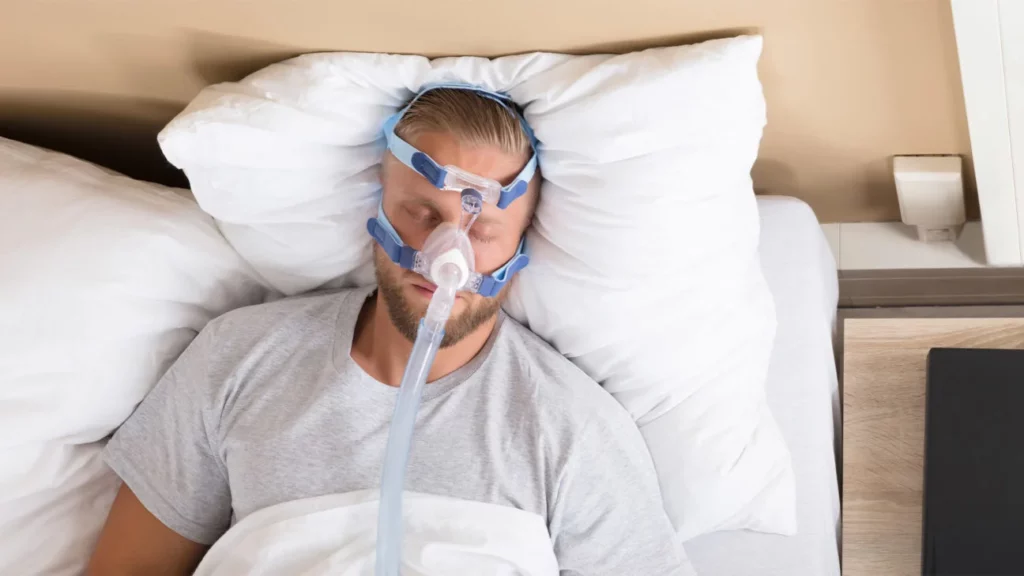Transform Your Sleep with a Sleep Study in Canberra
Sleep is a fundamental aspect of human health and well-being, yet many individuals struggle to achieve the quality rest they need. In Canberra, sleep studies offer a comprehensive solution to understanding and improving sleep patterns. This article explores the significance of sleep studies, the process involved, and how they can lead to transformative changes in sleep quality.
Understanding Sleep Disorders
Sleep disorders can manifest in various forms, including insomnia, sleep apnoea, restless legs syndrome, and narcolepsy. Each condition affects sleep quality and overall health differently, often leading to fatigue, irritability, and decreased productivity during the day. For instance, insomnia, characterised by persistent difficulty in falling or staying asleep, can lead to a vicious cycle where anxiety about sleep further exacerbates the problem. On the other hand, sleep apnoea, which involves repeated interruptions in breathing during sleep, can lead to serious cardiovascular issues if left untreated, highlighting the importance of recognising and addressing these disorders promptly.
Transforming sleep quality is possible through the insights gained from a sleep study Canberra. By understanding the nature of sleep disorders and receiving tailored treatment, individuals can experience profound improvements in their overall health and well-being.
Identifying the underlying causes of sleep disturbances is crucial. Factors such as stress, lifestyle choices, and medical conditions can all contribute to poor sleep. A sleep study provides valuable insights into these issues, allowing for targeted interventions. Moreover, lifestyle factors such as excessive screen time before bed, caffeine consumption, and irregular sleep schedules can significantly impact sleep quality. Therefore, adopting a holistic approach that includes both medical evaluation and lifestyle adjustments is often the most effective way to tackle sleep disorders.

Common Symptoms of Sleep Disorders
Recognising the symptoms of sleep disorders is the first step towards seeking help. Common signs include difficulty falling asleep, frequent awakenings during the night, excessive daytime sleepiness, and loud snoring. Individuals may also experience mood swings and difficulty concentrating. Additionally, some may find themselves relying on caffeine or other stimulants to get through the day, which can create a detrimental cycle affecting both sleep and overall health. It is not uncommon for those suffering from sleep disorders to report a decline in their social and professional lives, as the repercussions of poor sleep extend beyond mere fatigue.
If these symptoms resonate, a sleep study may be warranted. Early intervention can significantly improve quality of life and prevent long-term health complications. Furthermore, understanding the specific type of sleep disorder can lead to tailored treatment options, ranging from cognitive behavioural therapy for insomnia to the use of continuous positive airway pressure (CPAP) machines for sleep apnoea. Engaging with healthcare professionals who specialise in sleep medicine can provide individuals with the tools and strategies needed to reclaim restful nights and rejuvenated days.
Read about sleep testing at: Professional Sleep Testing Services in Canberra
The Importance of Sleep Studies
Sleep studies, also known as polysomnography, are diagnostic tests that monitor various physiological parameters during sleep. These studies help healthcare professionals assess sleep patterns and identify any abnormalities.
In Canberra, sleep studies are conducted in specialised sleep clinics equipped with advanced technology. These facilities provide a comfortable environment, allowing participants to sleep naturally while their sleep is monitored. This comprehensive approach ensures accurate data collection and analysis. The importance of these studies cannot be overstated, as they play a crucial role in understanding the complexities of sleep and its impact on overall health. For instance, sleep disorders such as sleep apnoea, insomnia, and restless leg syndrome can significantly affect an individual’s quality of life, leading to issues such as daytime fatigue, mood disturbances, and even cardiovascular problems if left untreated. Read more about complexities on https://fs.blog/what-is-complexity/
How Sleep Studies Work
During a sleep study, various metrics are recorded, including brain waves, heart rate, oxygen levels, and muscle activity. Sensors are placed on the scalp, face, chest, and limbs to gather this information. The data collected helps in diagnosing specific sleep disorders and determining the best course of treatment.
Typically, a sleep study lasts overnight, but some clinics may offer home-based studies for convenience. The results are analysed by sleep specialists who will provide a detailed report and recommendations based on the findings. In addition to the technical aspects, the psychological comfort of participants is also considered; many clinics employ trained staff to ensure that individuals feel at ease during the study. This is particularly important, as anxiety about the testing process can sometimes skew results. Furthermore, follow-up consultations are often scheduled to discuss the findings in detail, allowing for a more personalised approach to treatment and management of any identified sleep disorders.

Benefits of Undergoing a Sleep Study
Participating in a sleep study can lead to numerous benefits. Firstly, it provides a clear diagnosis, which is essential for effective treatment. Understanding the specific nature of a sleep disorder allows for tailored interventions that address individual needs.
Moreover, sleep studies can help uncover underlying health issues that may be contributing to sleep problems. For instance, conditions such as obesity, diabetes, or cardiovascular diseases can often be linked to poor sleep quality.
Improved Sleep Quality
One of the most significant benefits of a sleep study is the potential for improved sleep quality. Once a diagnosis is made, healthcare providers can recommend appropriate treatments, which may include lifestyle changes, therapy, or medical interventions.
With effective treatment, individuals often experience deeper, more restorative sleep, leading to increased energy levels and improved mood. This positive change can enhance overall quality of life, allowing individuals to engage more fully in daily activities.
Preparing for a Sleep Study
Preparation for a sleep study is relatively straightforward. Participants are typically advised to maintain their usual sleep routine in the days leading up to the study. This consistency helps ensure accurate results.
On the night of the study, individuals should arrive at the clinic with comfortable sleepwear and any personal items that may aid in relaxation, such as a favourite pillow or blanket. It is also advisable to avoid caffeine and alcohol before the study, as these substances can interfere with sleep patterns. Click here to find more about alcohol.
Upon arrival at the sleep clinic, participants will be greeted by trained staff who will explain the process and answer any questions. Once settled in, sensors will be attached to various parts of the body to monitor sleep activity. While the setup may seem intrusive, most individuals find it easy to adapt and fall asleep naturally.
Throughout the night, the monitoring equipment will collect data on sleep stages and any interruptions that occur. Participants are encouraged to sleep as they normally would, allowing for the most accurate assessment of their sleep patterns.
Post-Study Analysis and Treatment Options
After the sleep study is completed, the collected data is analysed by a sleep specialist. This analysis will determine whether a sleep disorder is present and, if so, the specific type. Based on these findings, the specialist will discuss potential treatment options.
Treatment may vary depending on the diagnosis. For instance, individuals diagnosed with sleep apnoea may be prescribed a Continuous Positive Airway Pressure (CPAP) machine, while those with insomnia might benefit from cognitive behavioural therapy for insomnia (CBT-I).
Follow-Up Care
Follow-up appointments are crucial to monitor progress and make any necessary adjustments to treatment plans. Regular check-ins with healthcare providers can help ensure that individuals are on the right path to improved sleep quality.
Additionally, ongoing education about sleep hygiene and lifestyle modifications can further enhance the effectiveness of treatment. Simple changes, such as establishing a consistent sleep schedule and creating a relaxing bedtime routine, can make a significant difference.
Conclusion
Seeking help for sleep issues is a vital step towards a healthier, more energised life. With the support of sleep specialists and the resources available in Canberra, achieving restful sleep is within reach for everyone.
For those struggling with sleep, a sleep study could be the key to unlocking better health and a brighter future. Don’t hesitate to reach out to local sleep clinics to explore the options available and take the first step towards transformative sleep.
